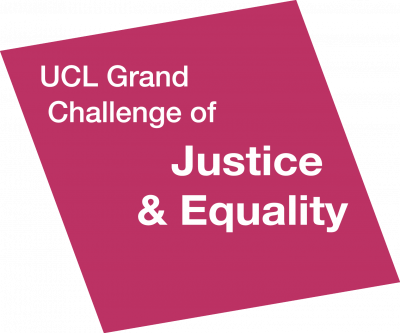Structurally Unsound: Social inequalities in the mid-2020s
Five years ago, the Resolution Foundation and UCL collaborated on a commission exploring the interactions between these inequalities. Since then, how have UK inequalities evolved?

8 October 2024
While the UK has made strides in tackling societal disparities, inherent inequalities remain. These inequalities, rooted in intersections of gender, race, class, sexuality, age, and disability, still exert a significant influence over people's lives. Since the report’s publication, the UK has faced numerous challenges, including the COVID-19 pandemic and an ongoing cost-of-living crisis, which have both tested and exacerbated existing inequalities.
Key questions now emerge:
- How have disadvantaged communities been affected by these economic and social shocks, and what structural barriers still impede progress?
- With health and disability gaining greater prominence on the public policy agenda, how do these intersect with other forms of inequality?
- How do structural inequalities align with the priorities of the current government, and what policy challenges must be addressed to effect meaningful change?
These pressing questions are central to the ongoing collaboration between UCL Public Policy and UCL Grand Challenges, which continues to drive cross-sector research and action to tackle inequality in the UK.
As part of this continued partnership, on 8 October, an expert panel: Dr Olivia Stevenson (UCL Public Policy), Prof. Imran Rasul (UCL Economics & Institute For Fiscal Studies), Alesha De-Freitas MBE (Fawcett Society), and chair Nye Cominetti (Resolution Foundation) recently reflected on new research that explores the evolving landscape of inequality. The panel discussed both the persistent challenges, and the innovative solutions needed to overcome structural barriers that disadvantage so many
If you missed the conversation, watch the livestream recording:
- Or, listen to the podcast.
- Or alternatively, read about it in the UCL News Story.
Structurally Unsound Five Years On - Reflective Workshop
Five years on, the project members involved in the 2019 report, recently reconvened experts drawn from academia, business, policy, and civil society, to reflect on the changed landscape of structural inequalities in the UK and discuss approaches to addressing these.
In collaboration with Pro Bono Economics, a day of compelling ‘lightning talks’ and focussed discussions explored topics including:
- How language can shape political agendas and determine the awareness and perceived urgency of tackling structural inequalities.
- Challenges of sustained, meaningful co-production with those who have lived experience of marginalisation.
- The importance of viewing structural inequalities as part of deep-set poverty pandemic in the UK, rather than a ‘one-off' cost-of-living crisis.
- Resilience and efforts to overcome disadvantages are being transferred from institutions to individuals.
- The possibilities of treating crises as opportunities to build capacity for long-term change.
- Valuing long-term relationships to ensure we are asking the right questions, and seeking the right evidence.
- A need to reformulate pre-existing ideas around multiple disadvantage – and the data needed to better understand where the shoe really pinches.
 Close
Close


